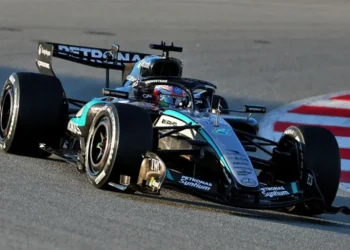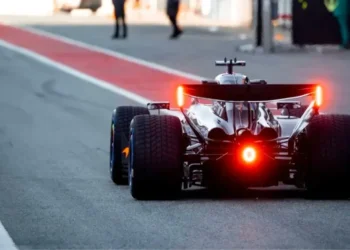As Formula 1 gears up for its major regulatory overhaul in 2026, not everyone is convinced that the sport is headed in the right direction. Formula E CEO Jeff Dodds has voiced strong concerns about the upcoming changes, warning that the new rules could result in heavier, slower cars—an outcome that could severely impact the thrill and prestige of F1.
The 2024 season is the penultimate one before F1 ushers in a new era with regulations that will see cars powered by a 50/50 mix of internal combustion and electric energy. This hybrid setup is designed to push the sport towards a more sustainable future, but Dodds isn’t buying the hype. He argues that the dual energy source could upset the delicate balance between weight and power, potentially turning the sport’s cutting-edge machines into sluggish, cumbersome vehicles.
Dodds’ main gripe centers on the weight increase that the new regulations will inevitably bring. He predicts that the added mass, coupled with the challenge of integrating two distinct energy systems, could slow the cars down significantly—a cardinal sin in a sport where speed is everything. “Formula 1 teams and drivers thrive on the pursuit of speed. If these changes make the cars heavier and slower, it risks alienating fans and diluting the essence of what makes F1 so exhilarating,” Dodds cautioned.
While Dodds acknowledges the importance of F1’s efforts to reduce carbon emissions, he’s skeptical about the long-term viability of the new rules. He concedes that incorporating electric fuels and hybrid technology is a step in the right direction for the environment, but he also fears that these changes could complicate F1’s traditional racing dynamics. The added complexity, he argues, might detract from the purity of the sport, which has always been about pushing the limits of speed and engineering.
Dodds also hints at the broader implications for Formula 1. If the new regulations make the cars less exciting to watch, the sport could lose its appeal, not just to fans but to manufacturers as well. Despite his reservations, Dodds does recognize that F1 is on the right track when it comes to contributing to a greener future. However, he remains doubtful about whether this path will preserve the sport’s legacy of being the pinnacle of motorsport.
As the 2026 season approaches, the debate over F1’s direction will only intensify. While the move towards sustainability is commendable, the challenge will be ensuring that the sport doesn’t sacrifice its core appeal in the process. For now, Formula E’s CEO has thrown down the gauntlet, raising questions that F1 will need to answer sooner rather than later.
Photo from Jeff Dodds Instagram










